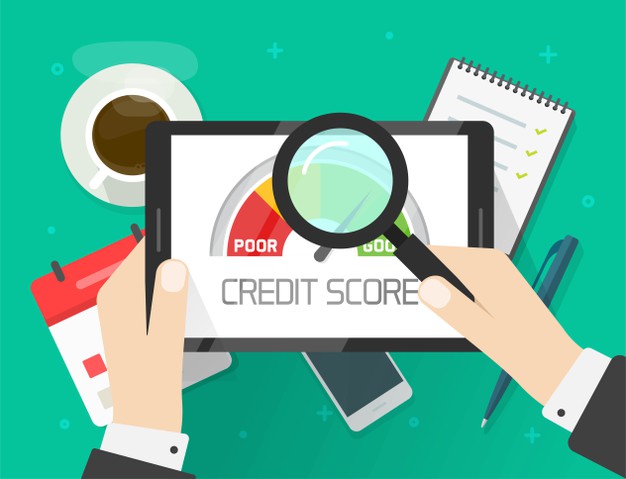From the interest rates of loans offered to you, or whether or not certain services are available or not - it can be a huge bummer when this number drops too much, and there's nothing you can do about it. This guide will show you the main ways to build and improve your credit score.
What Is A Credit Score?
Before we delve deeper into why and how to build and improve your credit score, it's important to know what a credit score is. Simply put, it is a number calculated by the major credit bureaus (FICO and VantageScore) based on your credit report.
The factors that determine this score vary slightly from bureau to bureau, but the three most significant factors are:
- Pay history – do you pay your bills on time?
- Credit utilization – how much of your available credit do you use?
- Length of credit history – how long have you been using credit?
Where Can You Check Your Credit Score?
You can see your credit score by logging into the website of the credit bureaus (i.e., Equifax, Experian, TransUnion). There are different ways to check your score, but accessing your free annual credit report is the most straightforward way. This can be found at AnnualCreditReport.com.
Once you sign in, you will be asked to log in with a valid Social Security Number or other valid identification number provided by the government.
5 Proven Ways To Build And Improve Your Credit Score
While no one solution will work for everyone and every situation, here are five ways to build and improve your credit score:
Pay Bills On Time
If you're not planning on getting a mortgage in the next year or two, then you probably don't need to worry about paying your bills on time (or any time at all). However, it's still important that you pay your bills on time. This will ensure that your credit score stays high and show lenders that you are a responsible borrower.
The main reason why people pay their bills late is because they forget. Setting up automatic payments to your bills will ensure that you don't forget, and if you do then, it won't affect your credit score as much as paying late. In addition to being a great way to save time, getting automatic bill payments is a great way to encourage good financial habits.
However, some creditors provide bad credit personal loans guaranteed approval $5,000. Such a decision depends on different factors. Moreover, the interest rate on these personal loans can be higher than in other cases.
Maintain A Low Utilization Rate
The utilization rate is a percentage that shows how much of your available credit you use. It is calculated by taking the total amount of money you owe and dividing it by your total available credit. If you have a credit card with a $10,000 limit and only owe $500 on that card, your utilization rate would be 5%.
The lower this number is, the better. The exact number that will get you perfect or "excellent" credit scores vary depending on the bureau, but anything below 20% is best for most people. The easiest way to do this is to use 80% of your available credit and pay off the rest each month.
Limit New Credit Applications
The more new credit cards you request at one time, the higher your credit score will be. This is because it's hard to keep your utilization rate low when applying for new cards. Lenders will give you more lenient terms (lower interest rates), and it can be hard to compete with all the other consumers trying to get the same loan.
However, there is no reason to apply for more than one or two new cards at a time. Also, only request cards that you really want; you don't need to ask for all of them (or any of them!) if they don't make sense for your situation (e.g., you don't want to carry a balance on the card, or you already have a good credit score).
Consider Consolidating Your Debts
Credit scoring models generally penalize you when you have high balances on multiple accounts compared to the total amount of available credit. This means that even if you pay your bills on time, your credit score can drop if you have too much debt.
One way to minimize this is through consolidation. If you have different loans with different interest rates and terms, consolidating them into one loan with better terms can help improve your credit rating because it shows that you are using credit responsibly regarding how much of it is in use and how much of it is it is in reserve.
Use Credit Monitoring To Track Your Progress
Credit monitoring is a great way to keep on top of your credit score. Even if you're not planning on applying for any new credit, it's still worth signing up for one of the credit monitoring services.
Many different companies provide this service, and they'll send you an email or text message any time there is an update on your credit score. This way, you can make adjustments as needed to ensure your credit remains in excellent standing.
The Bottom Line
Improving your credit score can be difficult if you don't know what you're doing. Understanding what makes up your credit score and how to improve it is one step in building a solid financial foundation for yourself.
Credit cards can be a great way to build credit if you use them responsibly and pay off your balance every month. Are you worried about your credit score? Why not check it today and see how it's doing!





